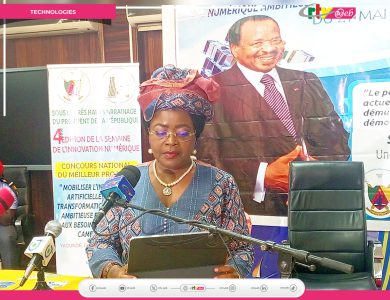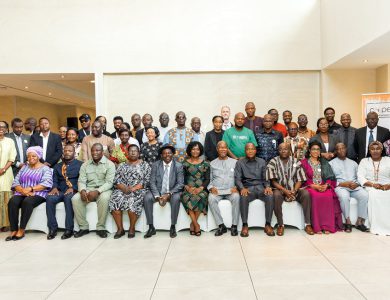Girls and young people across Cameroon and other countries going through situations of conflict are calling for ceasefires and peace talks so as to end violations and ensure safe education for them.
This is amongst major recommendations culled from the 2024 State of World’s Girls Report presented this October 29, 2024 in Yaounde in an event the Minister of Women’s Empowerment and the Family, Marie Therese Abena Ondoa chaired.
The report was compiled by PLAN International after a survey of 9,995 participants across ten countries: Cameroon, Columbia, Ethiopia, Lebanon, Mozambique, Nigeria, Sudan, Ukraine, the Philippines and one country whose name is withheld for politically-sensitive reasons.
In addition to these 9,995 participants, another group of 104 persons from Ethiopia, Cameroon, Columbia and the Philippines took part in in-depth interviews towards the production of the Report.
The Country Director of PLAN International Cameroon, Mohamed Ibrahima Bah, emphasized that the report called, “Still We Dream: Girls Living Through Conflicts” summarizes what young girls and boys are going through in conflict zones as well as what they desire as way forward.
Findings from the Report
The report indicates that young people have reported high levels of emotional stress with 55% complaining of sleep disturbance and 54% of constant worrying, with girls and young women reporting higher levels than boys and young men.
Furthermore, 27% of girls and young women reported sexual and Gender-based Violence as a daily constant risk. This was significantly emphasised in Ethiopia where many respondents say they have witnessed and experienced GBV and need safety and mental health services. They complained of girls and young women made pregnant due to rape and end up stigmatized when returning to their homes.
38% of the respondents mentioned feeling unsafe or very unsafe with 39% of girls and young women feeling more unsafe than 36% of their male peers. Bate, a 22-year-old Cameroonian remarks, “People cannot go to the farm again because of fear… People’s shops have been burnt and a lot of people have run away.”
45% of those who took the survey mentioned a reduction in their food intake with 47% of girls and young women reporting having greater difficulty accessing food aid as compared to 44% of boys and young men going through a drop in food intake.
Access to water and electricity is also a major problem with 59% of the respondents having limited or no access to the electricity and 41% having limited or no access to water.
The livelihoods of these respondents have been greatly affected by the conflict in their country as indicates 63% of them. 13-year-old Dalma from Cameroon, for instance, says, “The crisis has affected me and my family, having to move away from home… to a strange place where I have never been before.”
Overall, 65% of the respondents are advocating for peace talk towards an end to the situation of conflicts.
In Cameroon, many of the respondents mentioned having missed several years of school due to crisis.
Recommendations
– Implementation of immediate ceasefires and pursuing of meaningful peace talks towards lasting peace, while ensuring that girls’ and young people’s voices and specific needs are included.
– Stop and comdemn all violation against children in conflict situations, including their recruitment and use by armed forces amd armed groups, their killing and maiming, sexual violence, attacks on schools and hospitals, abductions and denial of humanitarian access.
– Support safe and inclusive education for children and young people including peace education, funding for the implementation of the Safe Schools Declaration and alternative learning approaches.
– Target humanitarian aid, making sure girls, boys and young people have equal access to food, water and shelter and that services for survivors of violence are prioritized.
– Bolster local economies and provide employment opportunities so that girls, boys and young people have tailored options, recognizing their varied needs.
Eleanor Ayuketah Ngochi










